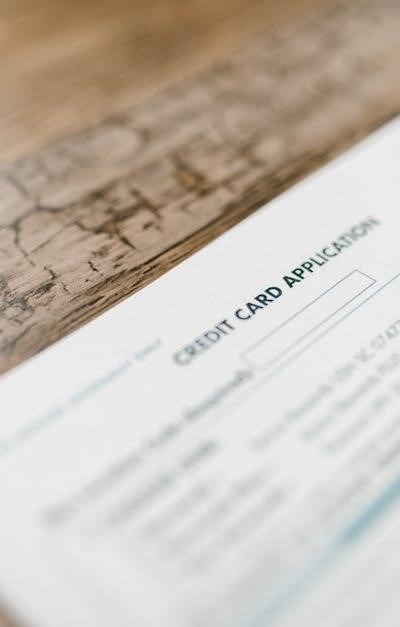
Understanding Your Protection Against
Credit Card Fraud
Credit card security is paramount in
today’s digital age․ Understanding your
liability protection when facing
credit card fraud‚ unauthorized
charges‚ or issues like online fraud
and skimming is crucial․ This
section details the limits of your
financial responsibility․
Zero liability policies offered by
many issuers significantly reduce your risk․
However‚ understanding the nuances of
debit card liability versus credit
card fraud protection is vital․
Reporting time is a key factor‚ as is
knowing how identity theft impacts
your rights․
Contactless payments‚ while
convenient‚ also present unique security
challenges․ Protecting your security
code (CVV) and PIN is
essential․ We’ll explore how purchase
protection and travel protection
features can further safeguard you․
Types of Credit Card Fraud & Security Threats
Credit card fraud manifests in various forms․ Online fraud‚ including phishing scams seeking your security code (CVV) and account details‚ is prevalent․ Skimming devices at ATMs or point-of-sale terminals capture your card information․ Unauthorized charges appear when someone uses your details without consent․ Identity theft can lead to extensive fraudulent activity․ Lost card or stolen card scenarios require immediate action․ Understanding these threats is the first step in protecting yourself and minimizing potential liability․
Credit Card Security Measures
Proactive credit card security involves several key steps․ Regularly monitor your statements for unauthorized charges․ Utilize strong‚ unique PINs and be cautious of phishing attempts․ Enable transaction alerts to quickly detect suspicious activity․ Be mindful of your surroundings when using your card‚ especially with contactless payments․ Protect your CVV and avoid sharing it unnecessarily․ Consider a fraud alert on your credit bureau report․ These measures help mitigate risk and limit potential liability․
Federal Law & The Fair Credit Billing Act (FCBA)
Federal Law & The Fair Credit
Billing Act (FCBA)
Federal law‚ specifically the
Fair Credit Billing Act‚ provides
significant consumer rights․ It
governs unauthorized charges and
the dispute process for billing
errors․ Understanding these regulations
is key to minimizing your liability․
The Fair Credit Billing Act & Consumer Rights
The Fair Credit Billing Act (FCBA) empowers you with robust consumer rights when disputing unauthorized charges․ It mandates that card issuers investigate errors promptly – typically within 30 days․ You’re not responsible for paying disputed amounts while the investigation is ongoing․ The FCBA outlines a clear dispute process‚ requiring written notification detailing the error․ This protection extends to billing mistakes‚ like incorrect amounts or services not received‚ offering a vital safeguard against credit card fraud and ensuring financial responsibility rests with the issuer for proven errors․
Zero Liability Policies & Maximum Liability
Many issuers offer zero liability protection‚ meaning you won’t be held responsible for unauthorized charges stemming from credit card fraud․ However‚ this often requires prompt reporting time and adherence to your cardholder agreement․ Federal law sets a maximum liability of $50 for credit card fraud‚ but this is rarely enforced with modern policies․ Understanding your issuer’s specific policy is key‚ as insurance and purchase protection can further limit your risk․ Always report a lost card or stolen card immediately․
Liability for Different Types of Fraudulent Activity
Liability for Different Types of
Fraudulent Activity
Credit card security breaches vary․
Debit card liability differs greatly
from credit card fraud protection․
Understanding these distinctions is vital
for consumer rights․
Online fraud‚ phishing scams‚
and skimming incidents all carry
different levels of risk․ The dispute
process and chargeback options
depend on the type of fraud․
Damage liability from identity
theft can be substantial․ Knowing your
financial responsibility limits is key․
Credit Card Fraud vs․ Debit Card Liability
A significant difference exists between credit card fraud and debit card liability․ Federal law‚ specifically the Fair Credit Billing Act (FCBA)‚ offers robust liability protection for credit cards‚ generally capping your maximum liability at $50‚ and often providing zero liability policies․ This means you’re typically not responsible for unauthorized charges․
Conversely‚ debit card protection is governed by different regulations‚ and your liability can be higher‚ especially if you don’t report the loss or theft promptly․ The reporting time significantly impacts your potential losses․ While banks offer some protection‚ it’s often less comprehensive than with credit cards‚ potentially leaving you financially responsible for a larger portion of fraudulent transactions․ Understanding these distinctions is crucial for responsible financial responsibility․
Proactive Steps & Ongoing Monitoring
Damage Liability & The Dispute Process
Damage liability extends beyond just lost card or stolen card scenarios․ Credit card security breaches‚ like skimming or phishing attempts leading to unauthorized charges‚ also fall under this․ If your card details are compromised‚ initiating a chargeback through the dispute process is vital;
The dispute process typically involves contacting your issuer‚ providing documentation‚ and allowing them time to investigate․ Your cardholder agreement outlines specific procedures and timelines․ Successfully disputing a charge removes your financial responsibility; Remember‚ prompt reporting time is key to maximizing your liability protection under federal law and the Fair Credit Billing Act․




Excellent article! It
This is a really well-written, concise overview of credit card fraud protection. It